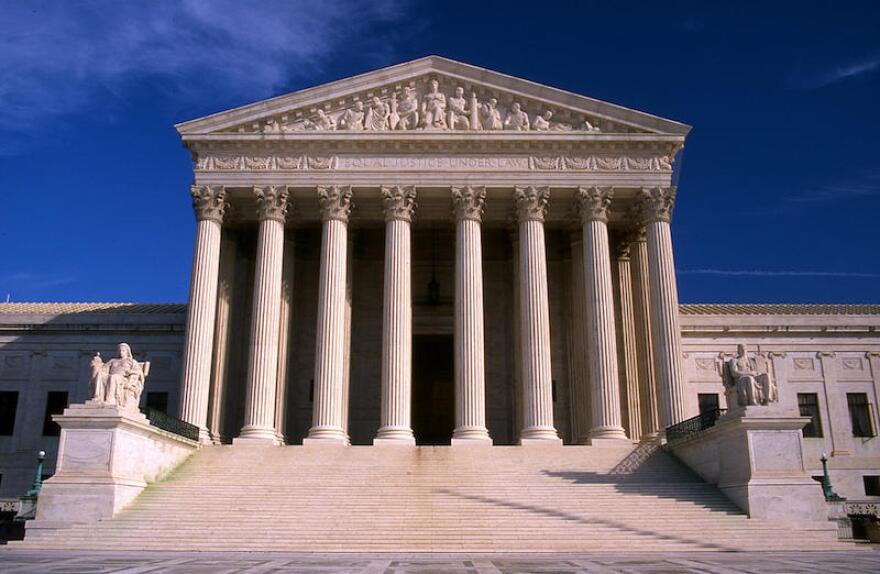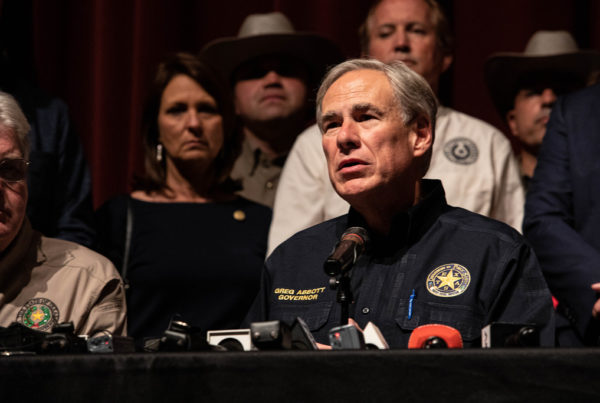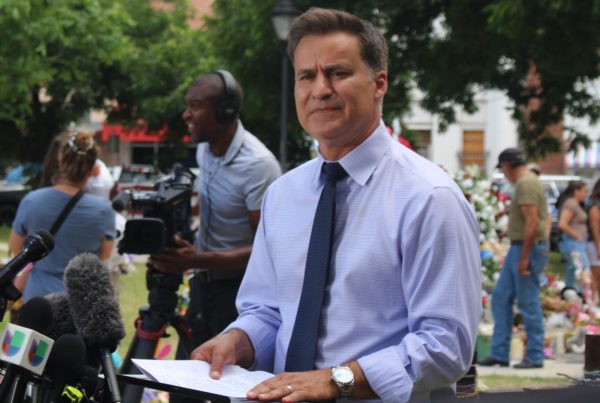On Tuesday, the U.S. Supreme Court issued an order blocking the new Texas social media law, HB20, from taking effect. The law, passed last year, is billed by its supporters as an anti-censorship measure. It would prevent tech platforms like Twitter and Facebook from removing user posts because of their viewpoints.
Tech companies filed an emergency application to the high court to keep the law from taking effect. And by a five-to-four margin, the court agreed. But Texas’ social media law will likely be back at the Supreme Court eventually, and the ruling this week provides clues to how that case might come out, says Stephen Vladeck, the Charles Alan Wright Chair in Federal Courts at the University of Texas School of Law. Listen to the interview above or read the transcript below.
This transcript has been edited lightly for clarity:
Texas Standard: What’s the impact of this decision? The law is still being contested in the lower courts, right?
Steve Vladeck: Yeah. The impact for now is that the law is on hold. So we had a decision back in December by a federal judge in Austin that had temporarily blocked the law. But the Fifth Circuit, the federal appeals court, had allowed it to go into effect two weeks ago. Tuesday, a Supreme Court decision halts that appeals court ruling. So we’re still waiting for the Court of Appeals to hand down its decision on whether the law is constitutional or not, at which point I think everyone expects this case to go to the Supreme Court again.
To be clear, the headline here is *not* the dissent; it’s that Chief Justice Roberts, Justice Kavanaugh, and Justice Barrett *all* voted to block HB20.
That’s a pretty powerful sign of where #SCOTUS is heading on this case—and issue—even if the dissent’s analysis is … alarming. https://t.co/3BN1t9KO3C
— Steve Vladeck (@steve_vladeck) May 31, 2022
Interesting coalition here. The five justices who voted to block the law are unlikely allies: Chief Justice John Roberts and fellow conservative justices Brett Kavanaugh and Amy Coney Barrett joining with two of the court’s liberal members. What does this tell us about how the court might ultimately rule?
I think it’s a pretty powerful sign that the court is likely to find the law unconstitutional. As you say, it was Chief Justice Roberts, justices Kavanaugh, Barrett, [Stephen] Breyer and [Sonia] Sotomayor. We also had, earlier this month, a decision by the federal appeals court in Atlanta striking down Florida’s similar law on content moderation. The odds are good that the Supreme Court’s going to have to take up this case on the merits and not just through one of these fast-tracked emergency applications. But I think the odds are also pretty good that there are at least five votes and maybe even six. Justice [Elena] Kagan dissented from Tuesday’s order but didn’t explain why. And so I think the odds are good that when all is said and done, the court’s going to strike down these laws, although perhaps by a closer margin than we might have expected, not so long ago.
Any hint as to the rationale for the Supreme Court majority blocking the Texas law?
No. I mean, as with so many of these emergency orders, the majority decision here was unsigned and unexplained. All the court said was that it was vacating the stay that the Fifth Circuit had imposed on the district court’s injunction. The Fifth Circuit, when it had allowed this law to go back into effect, hadn’t provided any analysis either.
So this is, to me, one of the real issues with doing such high-profile litigation on such important laws through these emergency orders – is that we don’t know why the justices felt the way they did. We have a dissent that was written by Justice Samuel Alito and joined by justices Clarence Thomas and Neil Gorsuch, runs about six pages, but that’s it. And so I think this is part of why folks like me have been critical of just how often courts of appeals and the Supreme Court these days are resolving these high-profile cases through these emergency orders.
You tweeted that the dissenting justices’ analysis, which was written by Justice Alito, was alarming. What is it that concerns you about this dissent? And what part of the Constitution are we talking about? I presume the First Amendment?
Justice Alito’s dissent basically suggests that there’s no First Amendment problem when a state like Texas or a state like Florida tells large social media companies that they can’t moderate based on content, basically that the video of, for example, the Buffalo shooting can’t be taken down by Twitter, by Facebook, by Instagram.
From Justice Alito’s perspective, because these large social media platforms resemble what are called common carriers, they’re not just ordinary businesses. They’re the kinds of businesses that are subject to much more aggressive government regulation than, say, a candy store or a manufacturer. And that would be a pretty significant shift in First Amendment jurisprudence. It would give the states a lot more power to control what these large private firms do. And I have to say, I don’t think it’s obviously ideological that this would only favor conservatives, although clearly would in the short term. That’s why this is such a big deal. I think that’s why it is inevitable that one way or the other, what happened on Tuesday is not going to be the last word.













